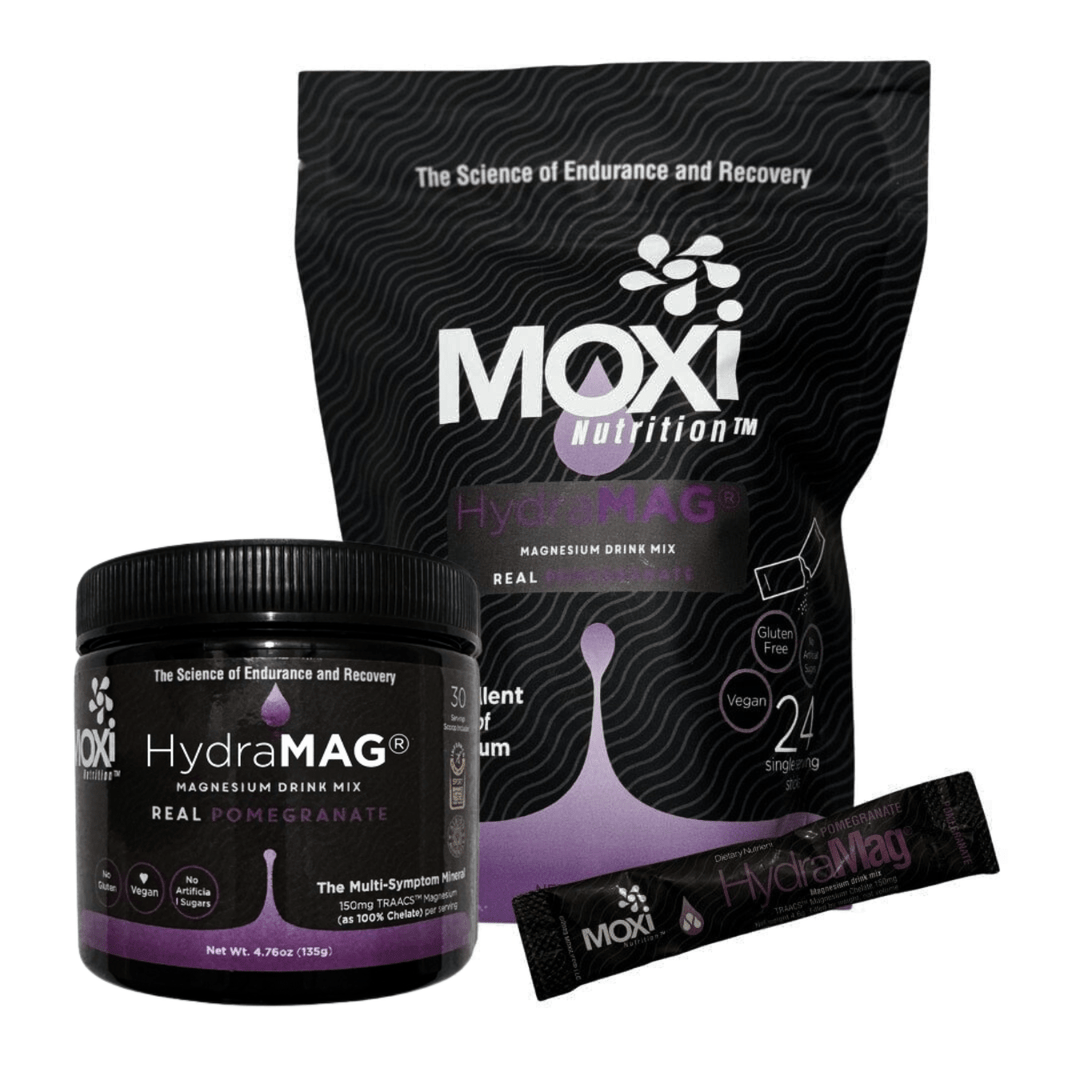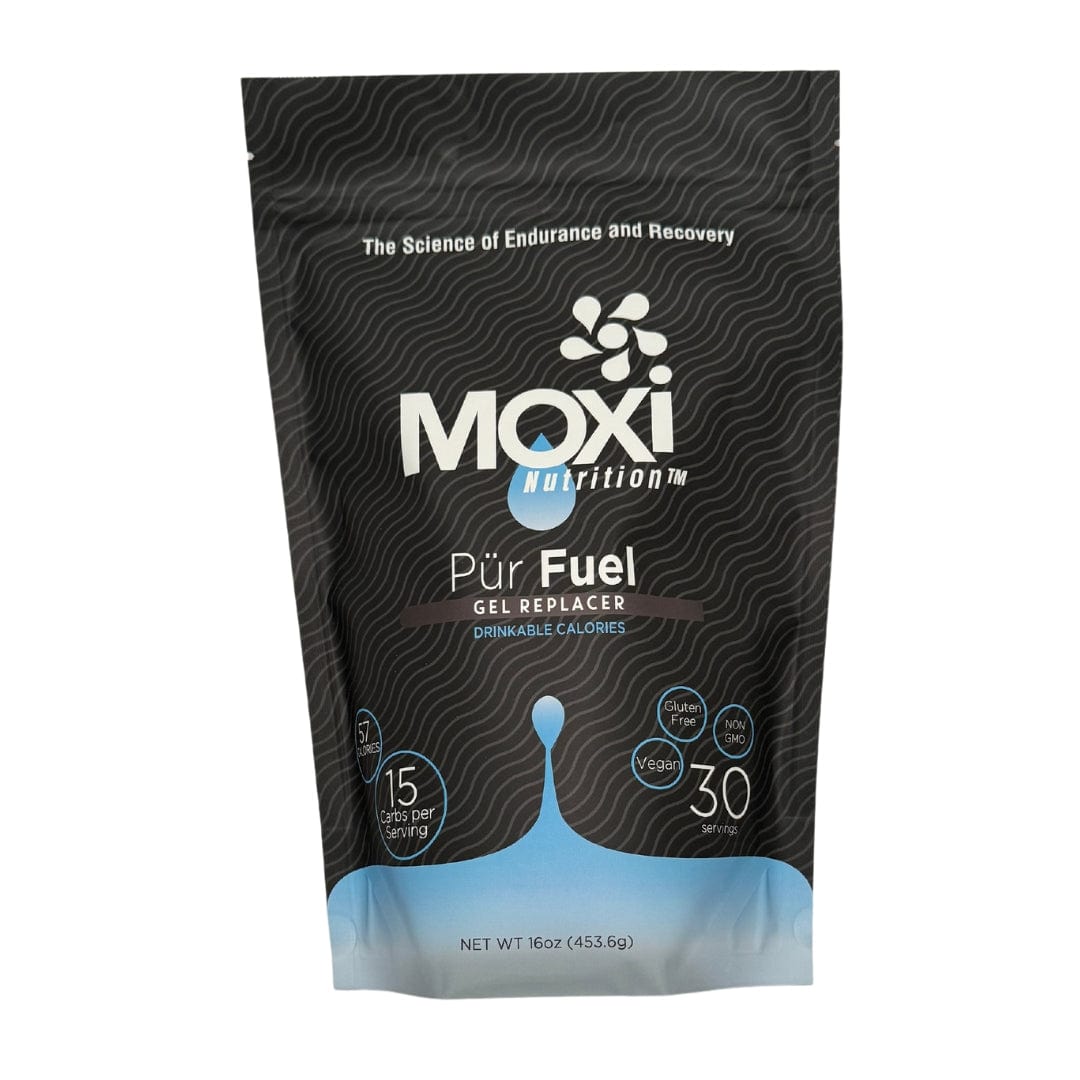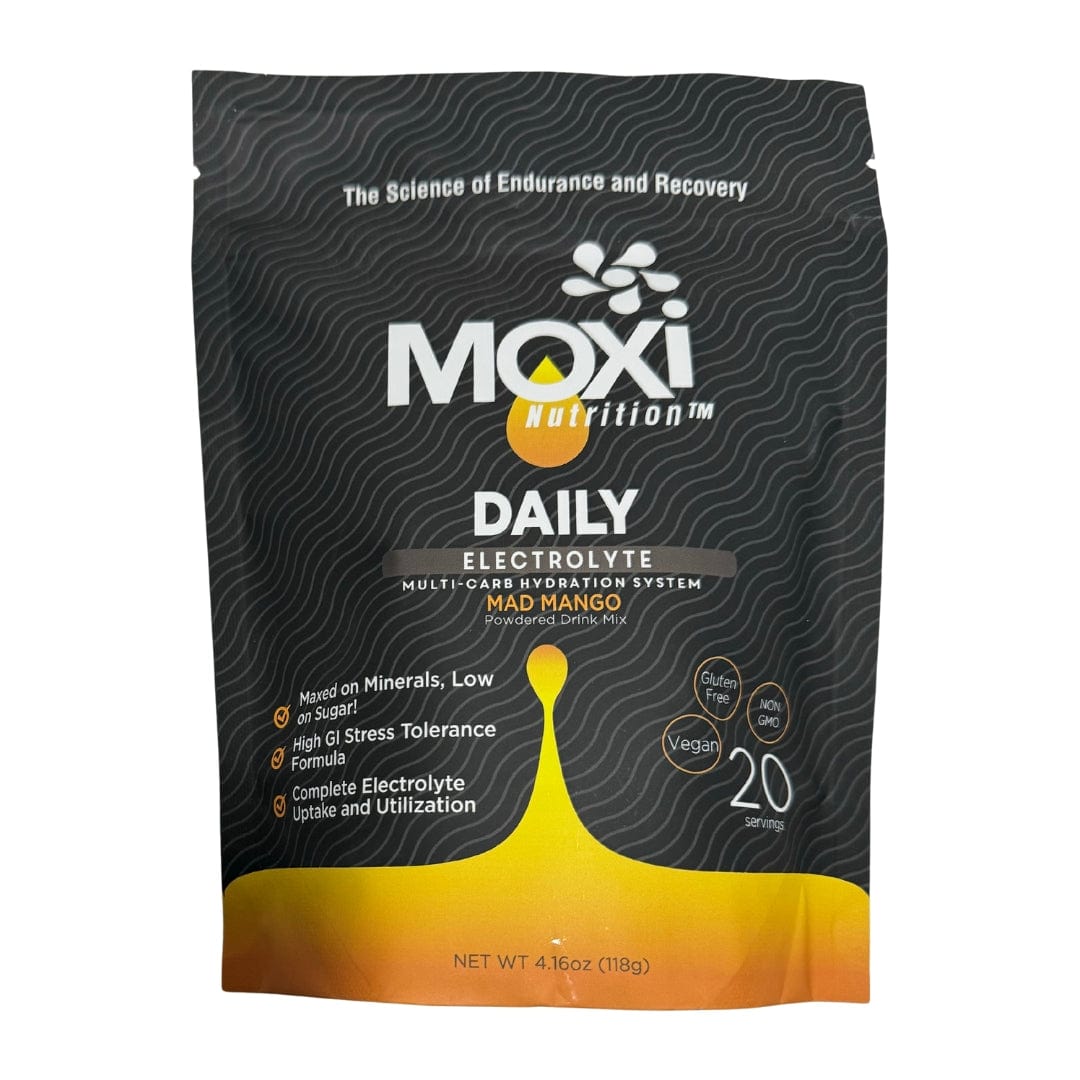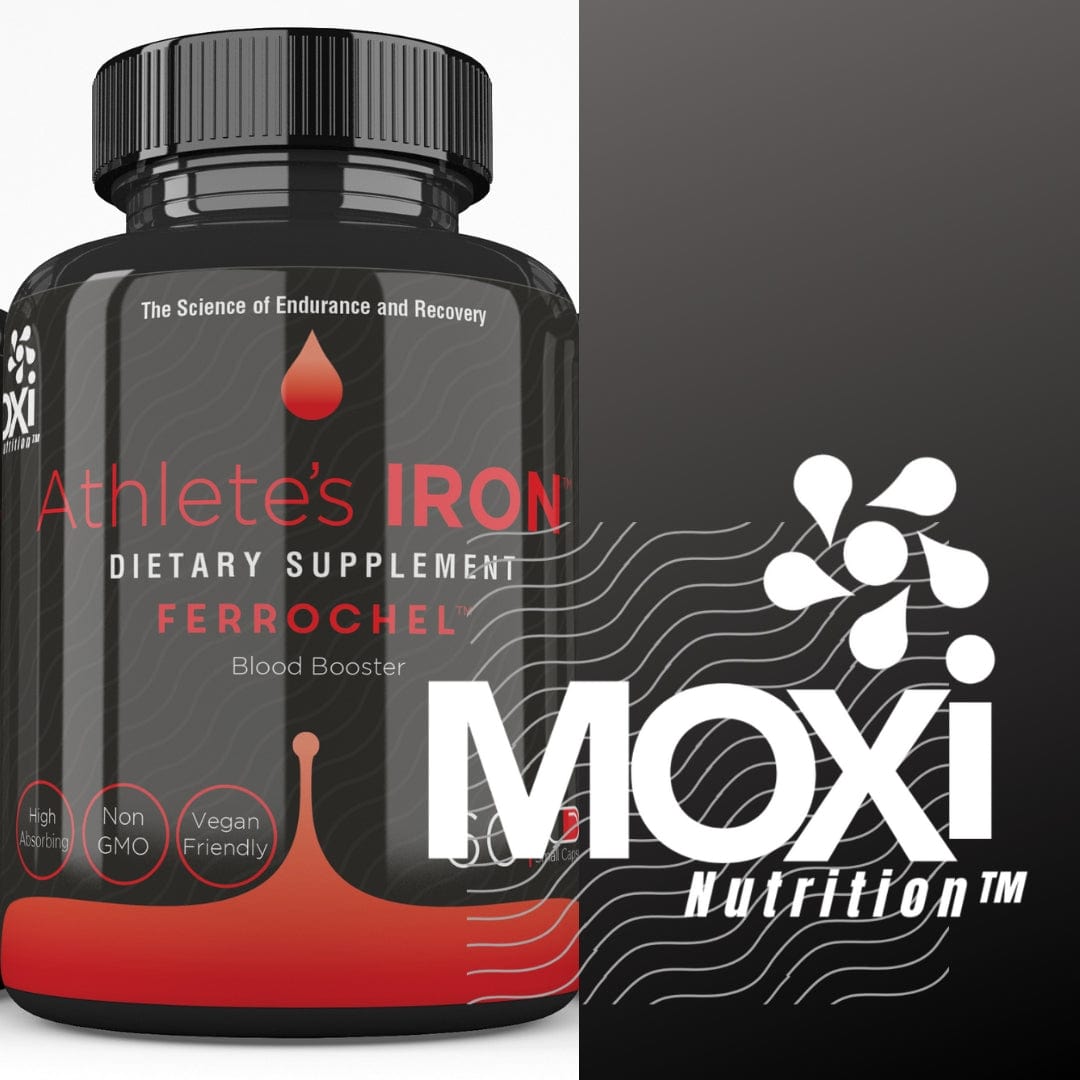Benefits of Magnesium for Athletic Performance
Benefits of Magnesium for Athletic Performance
Are you struggling to maintain your energy and performance during workouts? Many athletes overlook magnesium, a critical mineral that supports endurance and recovery. This article will explain the role of magnesium in athletic performance, identify its benefits, and highlight dietary sources to ensure you’re getting enough. By understanding how magnesium impacts your performance, you can address potential deficiencies and optimize your training results.
Understanding the Role of Magnesium in Athletic Performance
Magnesium plays a critical role in athletic performance, impacting various aspects of physical activity. It influences muscle function and energy production, which are essential for endurance training. Additionally, magnesium supports recovery and injury prevention while helping to maintain hydration levels, vital for overall performance. Understanding these aspects enhances one's nutrition strategy and promotes bone health, particularly for athletes dealing with conditions like premenstrual syndrome.
Exploring How Magnesium Influences Muscle Function
Magnesium significantly influences muscle function by activating enzymes that support energy production in skeletal muscle. A randomized controlled trial indicated that supplementation with magnesium oxide could enhance exercise performance, particularly in endurance sports. The ability of magnesium to improve enzyme activity boosts ATP production, which is vital for powering muscle contractions during physical activities.
Furthermore, magnesium's role in maintaining electrolyte balance is crucial for muscle contraction and relaxation. Insufficient levels can lead to fatigue and cramping, hindering athletic performance. By ensuring adequate magnesium intake, athletes can experience improved muscle coordination and reduced risk of injury, ultimately enhancing their overall athletic capabilities.
Analyzing Magnesium's Effect on Energy Production
Magnesium plays a vital role in energy production within the body by acting as a co-factor for adenosine triphosphate (ATP) synthesis. This process is essential for athletes who require a constant supply of energy during physical activities. Research shows that adequate magnesium levels can enhance ATP production, thus improving overall performance. Including magnesium-rich sources, such as cereals, in an athlete's diet can provide crucial support in maintaining necessary energy levels, especially under high-pressure conditions.
Furthermore, magnesium contributes to the body's electrolyte balance, which is crucial during intense training and competitions. An imbalance can lead to fatigue and decreased performance. Athletes who monitor their magnesium intake and maintain optimal levels through both diet and supplements can enhance their endurance and muscle function. Utilizing databases that track nutrient content can help athletes make informed dietary choices, ensuring they do not overlook this important mineral in their nutrition strategy.
Assessing Magnesium's Benefits for Recovery and Injury Prevention
Magnesium plays a significant role in recovery for athletes by aiding in muscle relaxation and reducing delayed onset muscle soreness (DOMS). Adequate magnesium levels can enhance sleep quality, which is essential for overall recovery and performance. When athletes prioritize magnesium-rich whole grain foods, they can help mitigate pain and support faster recovery after intense training sessions.
Proper magnesium intake contributes to overall physical well-being and injury prevention. By maintaining balanced electrolyte levels, magnesium helps prevent issues related to toxicity and dehydration. Athletes who monitor their magnesium consumption often experience fewer injuries, improved resilience, and enhanced performance in their respective sports.
Evaluating the Relationship Between Magnesium and Hydration Levels
Magnesium plays a significant role in maintaining hydration levels during physical activities, particularly for athletes engaged in strength training and anaerobic exercise. Dehydration can severely hinder performance and recovery, leading to fatigue, cramps, and decreased endurance. When athletes ensure adequate magnesium intake, they support their body's ability to retain fluids, especially during intense workouts and the stress of competition.
The relationship between magnesium and hydration becomes even more critical for female athletes managing their menstrual cycle. Hormonal fluctuations can affect magnesium levels, which in turn influences hydration status and overall performance. Incorporating magnesium-rich dietary supplements or foods into their nutrition can help these athletes maintain optimal hydration, ultimately enhancing their physical capabilities and reducing the risk of complications during training and competition.
Identifying the Benefits of Magnesium for Athletes
Optimal magnesium levels contribute significantly to athletic performance across multiple dimensions. Enhancing endurance is crucial as magnesium aids in energy metabolism and blood sugar regulation. This mineral also supports strength and power, boosting athletes' overall capabilities. Furthermore, magnesium improves cognitive function during competition and promotes cardiovascular health, reducing inflammation and symptoms related to asthma, ultimately facilitating better physical outcomes.
Enhancing Endurance Through Optimal Magnesium Levels
Optimal magnesium levels play a key role in enhancing endurance for athletes by acting as a vital cofactor in energy production and muscle function. Magnesium facilitates the regulation of ATP synthesis, which serves as the primary energy source during prolonged physical activities. By ensuring adequate magnesium intake, athletes can promote homeostasis in their bodies, supporting sustained performance and reducing fatigue, a common risk factor for many sports-related injuries.
Furthermore, magnesium influences the secretion of hormones that regulate stress and recovery processes, allowing athletes to manage their energy levels better throughout intense training sessions. Maintaining sufficient magnesium can help improve endurance, enabling athletes to push their limits with greater efficiency. This approach not only enhances athletic performance but also contributes to overall well-being by supporting a balanced metabolism during and after exertion.
Boosting Strength and Power in Athletic Performance
Magnesium significantly contributes to boosting strength and power in athletic performance by enhancing both nutrient absorption and digestion. This mineral serves as a cofactor for various enzymatic reactions involved in energy metabolism, enabling athletes to utilize energy stores efficiently during high-intensity workouts. Incorporating magnesium-rich foods, such as peanuts, can improve energy levels and strength outcomes, particularly for those looking to optimize their training regimens.
Additionally, magnesium's role in muscle function cannot be overstated. Adequate levels of this nutrient support muscle contraction and relaxation, which are indispensable for explosive movements in sports. Athletes, especially those with conditions like chronic kidney disease, must monitor their magnesium intake to ensure proper bodily function, ultimately enhancing their strength and performance potential while reducing the risk of injury.
Improving Cognitive Function During Competition
Research highlights the benefits of magnesium for athletes, particularly in enhancing cognitive function during competition. Studies have shown that sufficient magnesium levels can improve mental clarity and focus, which are crucial for making quick decisions in high-pressure situations. Athletes with optimal magnesium intake may also experience more stable heart rates, leading to better performance and fewer lapses in concentration compared to those taking a placebo.
Foods rich in magnesium, such as almonds, contribute to brain health by supporting neurotransmitter function. Improved cognitive performance can lead to sharper reflexes and better strategic thinking during competitions. This advantage helps athletes maintain a competitive edge, ultimately translating into stronger performances on the field or court.
Supporting Cardiovascular Health for Athletes
Magnesium is essential for optimal cardiovascular health, which directly impacts athletic performance. It aids in regulating heart rhythms and supports the production of red blood cells, crucial for transporting oxygen throughout the body. This enhanced oxygen delivery improves endurance, allowing athletes to perform at their best without succumbing to fatigue or headaches during training or competition.
Furthermore, magnesium positively influences the nervous system, playing a role in stress management and muscle function. For athletes focusing on weight loss, maintaining cardiovascular health is critical, as an efficient heart can better support higher activity levels and caloric burn. By prioritizing magnesium intake, athletes can improve their overall health, which ultimately boosts their performance on the field or court.
Recognizing Signs of Magnesium Deficiency in Athletes
Symptoms related to low magnesium levels may manifest as fatigue, muscle cramps, or irritability, affecting athletic performance. It’s vital for athletes to identify risk factors for magnesium deficiency, such as intense training or inadequate dietary choices. Foods like whole wheat bread and supplements with glycine can enhance magnesium density, helping to maintain optimal levels and support overall health.
Understanding Symptoms Related to Low Magnesium Levels
Low magnesium levels often lead to symptoms that can significantly hinder an athlete's performance. Common indications include persistent fatigue, muscle cramps, and irritability, which may result from insufficient magnesium impacting the small intestine's ability to absorb nutrients effectively. Athletes engaged in rigorous training should monitor their magnesium intake closely, as studies show that therapy involving magnesium supplementation can improve overall performance by alleviating these symptoms.
In a clinical trial, participants with low magnesium were found to have increased blood pressure along with other cardiovascular issues, further illustrating the importance of this mineral in maintaining health. For athletes, sustaining optimal magnesium levels is essential not only for performance enhancement but also for overall well-being. Eating magnesium-rich foods such as leafy greens, nuts, and whole grains can help mitigate deficiency symptoms, allowing athletes to achieve their training goals without unnecessary setbacks.
Identifying Risk Factors for Magnesium Deficiency Among Athletes
Understanding the risk factors for magnesium deficiency is essential for athletes aiming to maintain optimal performance. Intense training regimens can increase the demand for this critical mineral, often outpacing dietary intake. A systematic review highlights that athletes consuming a diet low in whole grains, fruits, and vegetables are particularly vulnerable, as these foods are rich sources of magnesium. For example, brown rice serves as a nutritious option that not only provides energy but also contributes to magnesium levels, supporting bone mineral density and overall health.
Additionally, athletes focused on weight loss or those engaging in high-stress sports may face increased magnesium needs due to the metabolic changes associated with intense physical activity. Supplementation using magnesium hydroxide can help address deficiencies, especially in athletes who struggle to meet their nutritional requirements through food alone. Recognizing these risk factors allows athletes to proactively manage their magnesium status, ultimately enhancing their athletic performance and supporting recovery processes.
Discussing the Impact of Dietary Choices on Magnesium Intake
Dietary choices play a significant role in magnesium intake for athletes, influencing not only performance but also overall health. Foods rich in magnesium, such as dark chocolate, leafy greens, and legumes, should be staples in an athlete's diet. Inadequate consumption of these foods can lead to symptoms like nausea and fatigue, which may hinder training and competition readiness.
Particularly during life stages like menopause, women's magnesium needs may increase due to hormonal changes. Athletes who pay attention to their magnesium levels can support their immune system and optimize their performance under stress. Ensuring a balanced and magnesium-rich diet can help mitigate deficiencies and enhance athletic capabilities.
Dietary Sources of Magnesium and Its Importance for Athletes
Magnesium is vital for athletes, and understanding its dietary sources can greatly enhance performance. Key magnesium-rich foods, such as nuts and whole grains, support overall physiology and energy levels crucial for aerobic exercise. Additionally, exploring various forms of magnesium supplements can help individuals meet their specific needs, as recommended by a physician or found in Cochrane reviews. Evaluating these options allows athletes to optimize their magnesium intake effectively.
Highlighting Top Magnesium-Rich Foods for Athletes
Nuts are a powerhouse of magnesium and should be a staple for athletes aiming to improve their performance and reduce injury risk. Almonds, cashews, and Brazil nuts not only provide essential magnesium but also serve as an excellent source of healthy fats, which help manage inflammation in the body. A registered dietitian often recommends incorporating these nuts into snacks or meals to support muscle contraction and overall athletic recovery.
Legumes, including black beans and chickpeas, are another vital source of magnesium that athletes can benefit from. They offer a combination of protein and fiber, making them an excellent option for sustaining energy levels during intense training sessions. By consuming these magnesium-rich foods, athletes can potentially minimize the adverse effects of sugar spikes in their diet while enhancing their antioxidant intake, which is crucial for combating oxidative stress associated with vigorous exercise.
Understanding the Role of Supplements in Achieving Magnesium Needs
Supplements play a pivotal role in helping athletes achieve their magnesium needs, especially when dietary intake falls short. For instance, a blood test can reveal deficiencies that may impact performance, such as reduced concentration and increased susceptibility to oxidative stress. Athletes who find it challenging to consume adequate magnesium from food sources might consider magnesium supplements, which can effectively support muscle function and recovery while preventing issues related to electrolyte imbalance.
In certain cases, supplementation can provide a quick solution to replenishing magnesium levels, particularly after intense training periods. This is vital for maintaining overall health, as low magnesium can lead to muscle cramps and fatigue, hindering performance. Athletes must select appropriate magnesium forms, as recommendations from a healthcare professional can ensure they meet their specific requirements while balancing other essential minerals like iron in their diet.
Evaluating Different Forms of Magnesium Supplements Available
Various forms of magnesium supplements are available, each with distinct benefits and absorption rates. For athletes, magnesium citrate and magnesium glycinate are often recommended due to their higher bioavailability, making them effective for replenishing magnesium levels. Additionally, magnesium supplementation can support kidney function by aiding in the excretion of excess minerals through urine, which is particularly important for athletes concerned about risk factors associated with dehydration or kidney disease.
When choosing magnesium supplements, it is crucial for athletes to consider individual health needs and dietary preferences. For instance, incorporating magnesium-rich foods like cashews into their diet can provide natural sources of this essential mineral, while tablets or powders might be better for those looking to quickly address deficiencies. Understanding the different forms of magnesium can help athletes optimize their intake, ensuring they maintain peak performance while minimizing potential adverse effects associated with inadequate levels.
Implementing Magnesium for Optimized Athletic Performance
Determining the ideal magnesium dosage for athletes is essential for optimizing performance. Timing magnesium intake can maximize benefits, ensuring the body receives support when most needed, especially during intense training phases. Additionally, creating a magnesium-rich meal plan that includes foods like spinach and magnesium aspartate can enhance oxygen delivery and contribute to effective stress management, leading to improved athletic outcomes.
Determining the Ideal Magnesium Dosage for Athletes
Determining the ideal magnesium dosage for athletes involves considering their individual needs, activity levels, and dietary patterns. Magnesium citrate is often recommended for its high absorption rate, making it a practical choice for athletes seeking to enhance their performance. Moreover, ensuring adequate magnesium intake can help mitigate the risk of dehydration, particularly during intense training sessions where fluid loss is significant.
Athletes incorporating magnesium into their routine should also take into account the role of vitamin B6 in supporting magnesium metabolism and overall health. Studies suggest that adequate magnesium levels can improve insulin sensitivity, assisting in the management of insulin resistance, which is crucial for athletes looking to maintain optimal energy levels. Prioritizing a healthy diet that includes magnesium-rich foods can significantly contribute to meeting these requirements while promoting peak athletic performance.
Timing Magnesium Intake for Maximum Benefits
Timing magnesium intake wisely can significantly enhance athletic performance by aligning it with the body's natural rhythms and needs. For example, consuming magnesium-rich foods or supplements before workouts can improve nerve function and muscle contractions during physical exertion. Studies suggest that optimal magnesium levels can act as a biomarker for muscle recovery and energy efficiency, making it essential for athletes who aim to maximize their output while managing weight effectively.
Additionally, athletes may benefit from timing magnesium intake around meals to facilitate better glucose metabolism. Incorporating magnesium sources alongside carbohydrate-rich foods can help stabilize blood sugar levels, contributing to sustained energy during training sessions. This careful timing not only supports performance but also promotes overall health, as it encourages a balanced nutrient approach that addresses both immediate and long-term athletic needs.
Creating a Magnesium-Rich Meal Plan for Athletes
Creating a magnesium-rich meal plan is essential for athletes looking to enhance their performance through proper nutrition. Foods such as sesame seeds stand out for their high bioavailability of magnesium, allowing for efficient absorption and utilization in the body. Incorporating ingredients rich in magnesium into meals not only aids in muscle function but also supports blood cell production, which is vital for delivering oxygen and nutrients during intense physical activities.
In addition to whole grains and nuts, athletes can benefit from including affected foods that enhance magnesium intake while avoiding excessive laxative effects, which can occur with certain supplements. Whole foods like spinach and beans can play a critical role in this plan, helping prevent disease related to nutrient deficiencies. By prioritizing diverse sources of magnesium-rich foods, athletes can maintain optimal levels necessary for peak performance and recovery.
Examining Research and Studies on Magnesium and Athletic Performance
Key studies have established a link between magnesium and improved sports performance, emphasizing its role in energy metabolism and muscle function. Clinical trials on magnesium supplementation further highlight its benefits, revealing how it can positively affect mood and recovery. Expert opinions provide insight into magnesium's significance in sports nutrition, focusing on its interaction with calcium and chloride to enhance overall athletic capabilities.
Reviewing Key Studies Linking Magnesium to Sports Performance
Recent research highlights the vital connection between magnesium supplementation and enhanced athletic performance, particularly regarding energy production and nutrient utilization. Studies have indicated that magnesium’s role as a co-factor in amino acid metabolism can lead to better muscle recovery and more effective energy release during workouts. Furthermore, magnesium supports the production of nitric oxide, a compound that improves blood flow and oxygen delivery to muscles, which can significantly boost endurance and overall athletic output.
Moreover, investigations into magnesium's interaction with zinc reveal its importance in maintaining a balanced state that benefits both performance and weight management. Athletes who ensure adequate magnesium intake may experience improved metabolic function, leading to more efficient energy utilization and fat loss. This synergy not only enhances physical capabilities during competitions but also addresses common issues like fatigue and muscle cramps, providing a comprehensive approach to achieving peak performance in sports.
Analyzing Clinical Trials Focused on Magnesium Supplementation
Clinical trials investigating magnesium supplementation have revealed significant findings regarding its impact on athletic performance. Research indicates that athletes supplemented with magnesium have experienced lower serum levels of fatigue and a reduction in perceived weakness during intense training. This enhancement is particularly beneficial for those engaged in long-duration sports, where optimal magnesium levels support efficient energy production and muscle function.
Furthermore, studies have shown that adequate magnesium intake influences the central nervous system, promoting better coordination and muscle control. This is critical for athletes, as improved neural functioning can lead to enhanced performance and quicker recovery times. For instance, athletes who consume magnesium-rich foods like rice and green leafy vegetables can potentially increase their overall efficiency and reduce the risk of fatigue-related injuries.
Interpreting Expert Opinions on Magnesium's Role in Performance Enhancement
Experts emphasize the importance of magnesium chloride in supporting metabolism and enhancing athletic performance. This mineral acts as a co-factor for various enzymatic processes, including those related to energy production and the conversion of fat into usable energy. By optimizing magnesium levels, athletes can combat issues such as muscle cramps, which can significantly hinder performance during training and competition.
Furthermore, magnesium is recognized for its role in neurotransmitter regulation, influencing mood and cognitive function. Proper magnesium intake helps athletes maintain focus and mental clarity, especially during high-stress situations. Addressing magnesium deficiency can lead to improved performance outcomes while reducing susceptibility to fatigue and emotional strain, ultimately aiding athletes in achieving their training goals more effectively.
Conclusion
Magnesium is essential for athletes, significantly enhancing performance through improved energy production, muscle function, and recovery. Maintaining optimal magnesium levels helps reduce fatigue, muscle cramps, and stress, allowing for more effective training sessions and competitions. Including magnesium-rich foods in the diet or considering supplements can address deficiencies and support overall health. By prioritizing magnesium intake, athletes can unlock their full potential and achieve their performance goals.







